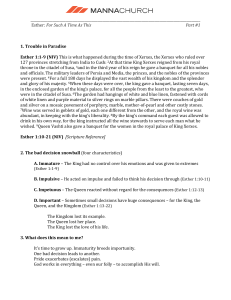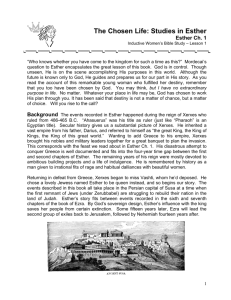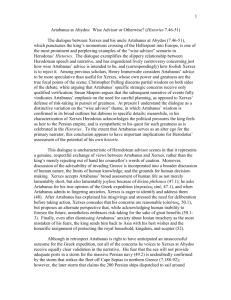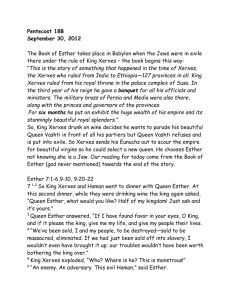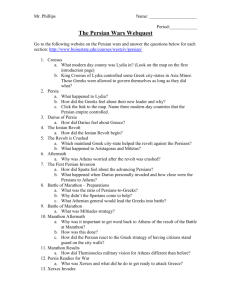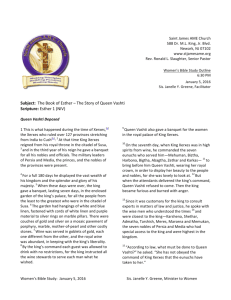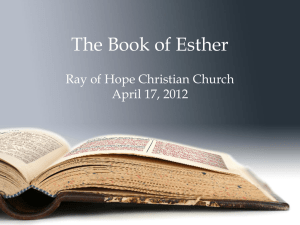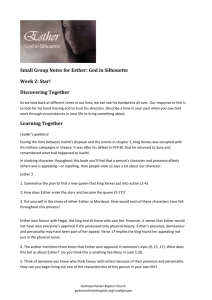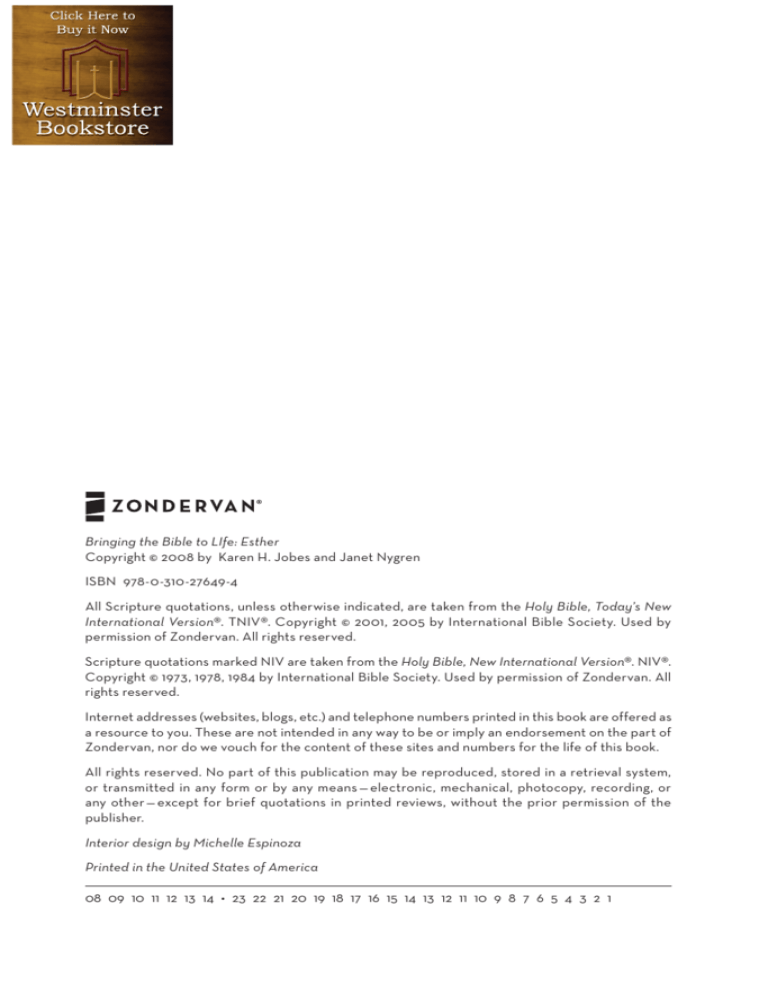
Cl
i
ckHer
et
o
Buyi
tNow
West
mi
nst
er
Bookst
or
e
Bringing the Bible to LIfe: Esther
Copyright © 2008 by Karen H. Jobes and Janet Nygren
ISBN 978-0-310-27649-4
All Scripture quotations, unless otherwise indicated, are taken from the Holy Bible, Today’s New
International Version®. TNIV®. Copyright © 2001, 2005 by International Bible Society. Used by
permission of Zondervan. All rights reserved.
Scripture quotations marked NIV are taken from the Holy Bible, New International Version®. NIV®.
Copyright © 1973, 1978, 1984 by International Bible Society. Used by permission of Zondervan. All
rights reserved.
Internet addresses (websites, blogs, etc.) and telephone numbers printed in this book are offered as
a resource to you. These are not intended in any way to be or imply an endorsement on the part of
Zondervan, nor do we vouch for the content of these sites and numbers for the life of this book.
All rights reserved. No part of this publication may be reproduced, stored in a retrieval system,
or transmitted in any form or by any means — electronic, mechanical, photocopy, recording, or
any other — except for brief quotations in printed reviews, without the prior permission of the
publisher.
Interior design by Michelle Espinoza
Printed in the United States of America
s Contents
Series Preface
7
Introduction
11
Session 1 Power in the Persian Court
15
"?mnb_l+4+É,,#
Session 2 What’s a Nice Girl Like You
25
Doing in a Place Like This?
"?mnb_l,4+É+2#
Session 3 Conflict in the Court
"?mnb_l,4+3É-4+/#
Session 4 Blowing the Trumpet in Zion
71
"?mnb_l24+É+1#
Session 8 Let the Celebr ation Begin!
61
"?mnb_l14+É+*#
Session 7 A Reversal of Fortune
51
"?mnb_l/43É04+.#
Session 6 Pride Goes Before a Fall
43
"?mnb_l.4+É/42#
Session 5 The Tables Turn
33
81
"?mnb_l34+É+*4-#
Leader’s Notes
91
Power in the
Persian Court
?mnb_l+4+É,,
W
ar clouds were gathering on the eastern horizon as the two
great superpowers of the day, Persia and Greece, faced off.
In the opulent court of Xerxes, king of Persia, lavish days of banqueting were underway as Xerxes entertained the men who would
lead his army against Greece. No one was paying any attention
to the Jews, dispersed among the peoples of Persia, much less to
a beautiful, young Jewish woman named Hadassah. The God of
this scattered people was virtually unheard of and certainly not
mentioned as the Persians gathered their forces. In Esther chapter 1, Xerxes flexes his power with unexpected consequences for
his own family — consequences that extend into every household
of the empire. This surprising episode of the age-old battle of
the sexes sets into play a chain of events that demonstrates God’s
power to direct history for his own purposes through seemingly
insignificant details. Chapter 1 also foreshadows elements of the
story in the rest of the book.
XERXES’ WEALTH AND POWER1
Read Esther 1:1 – 8.
The Persian King Xerxes, who ruled from 486 – 465 BC,
is also known by the Hebrew name Ahasuerus in some English
translations. Xerxes is probably the Greek transliteration of his Persian name
Khshayarshan. In Hebrew his name takes the form Ahasuerus, pronounced
“Ahashwerosh.”
GOING
DEEPER
1. What’s the most opulent place you’ve ever been? Imagine yourself in the
lavish setting of a garden banquet with hangings of white and blue linen
fluttering in the breeze, couches gilded with gold and silver and a beautiful
mosaic pavement of colorful and costly stones. You’re offered wine served
in goblets of gold. What are your first impressions of King Xerxes? How
do you think those attending that banquet would have viewed the king?
The banquet held “in the third year” of Xerxes’ reign (1:3) corresponds
well with the great war council of 483 BC, held to plan for the Persian
invasion of Greece. Xerxes was mustering the nobles, officials, military
leaders, princes, and governors of the provinces in Susa to rally support for his military campaign against the Greeks. The vast expanse
of the Persian empire, from modern Pakistan in the east to modern
Turkey in the west, encompassed many people groups with different
languages, ethnic origins, and religions. Maintaining their support and
loyalty over such a diverse and far-flung empire was no small feat.
During the 180 days of the council, Xerxes displayed his wealth and
glory to consolidate the leaders of the many provinces of the empire
under his authority and to gain their loyalty to his cause.2
/
2. By the time the book of Esther was written, the original readers would
have been well aware that King Xerxes suffered a surprising defeat by the
Greeks that depleted his royal wealth. How does knowing this historical
fact affect your reading of the story? How does it influence your view of
King Xerxes? Of the leaders of powerful nations in general?
THE COMPLEX ROLE OF A QUEEN3
Read Esther 1:9 – 12.
3. One wonders how often queens of ancient empires were commanded to
display their beauty at a big party. How does Queen Vashti’s response to
King Xerxes threaten his power and embarrass his plans?
: /
GOING
DEEPER
4. The interaction between King Xerxes and Queen Vashti presents a complex example of submission — within a marriage, to a ruler, and to a higher
moral authority. Is Queen Vashti’s refusal justified? Is the king’s anger
justified? Why or why not?
Note that this passage is the first of many in which the author refrains
from making any moral or ethical evaluation. He does not fault the
king for drinking, nor does he commend or condemn Vashti for refusing to appear at the king’s command. The ethical and moral ambiguity of the characters is an important element in the story and is
particularly appropriate to its meaning and application, for divine
providence works through human behavior that flows from even the
most ambiguous and confused of motives.4
5. How does Queen Vashti’s interaction with King Xerxes set the stage for
Esther, who will become the next queen?
/
POWER IN THE COURT5
Read Esther 1:13 – 22.
6. It’s certainly appropriate for leaders to surround themselves with advisers — in fact, quite a few Scriptures would support that, such as Proverbs
11:14: “For lack of guidance a nation falls, but victory is won through
many advisers.” Do King Xerxes’ advisers strike you as wise men? Why or
why not? What might be motivating their advice?
7. How does King Xerxes’ reliance on his advisers affect your view of his
character as a leader?
: /
GOING
DEEPER
8. Remember that King Xerxes’ kingdom includes 127 provinces stretching
from India to Cush (Est. 1:1). His edict travels to all of them, in their own
languages (1:22). How do you think the king’s royal decree will ultimately
affect his reputation?
The author is cynical about the powers of this world. Although the
Persian king and his officials hold such power, with this episode the
author questions if they are really ever in control. Is their word truly
irrevocable? In his description of how Vashti’s defiance was handled,
the author is mocking the inner weakness of the outwardly most
powerful empire of that time.6
9. The advisers are quite matter-of-fact about the respect women will have
for their husbands once they hear the proclamation. How does the respect
commanded in the king’s royal decree (1:20) differ from the respect commanded in Ephesians 5:21 – 33? Which approach is more effective? Why?
/
10. How would your life and morals as a Jew, living anywhere in the known
world (i.e., the Persian empire), have been affected by this powerful, but
morally ambiguous king? (Keep this in mind for later edicts issued by
King Xerxes as well.)
GOING
DEEPER
11. Read Psalm 2 and Mark 10:42 – 45. How is the kingdom of Xerxes different from the kingdom of God? What would you think is God’s view of
leaders such as King Xerxes?
The King of kings condemns the type of leadership exemplified in
Xerxes’ court and by the countless kings, presidents, and world leaders
since. As a backdrop for the story of the salvation of God’s people in
the Persian period, the author of the book of Esther provides an example of the type of worldly leadership Jesus condemned: The rulers of
the Gentiles were indeed lording it over the people of their empire
and exercising their authority to demand a respect that they feared
would not otherwise be forthcoming. In stark contrast, the leadership
of Jesus was motivated not by his own personal fears and anxieties,
but by the needs of those he governs as King of the universe.7
: /
12. Several seemingly insignificant actions or decisions have far-reaching
effects in this chapter. Identify and reflect on such moments in your own
life. How does God use these moments to accomplish greater purposes in
your life and in his kingdom?
RESPONDING TO GOD’S WORD
Jesus transformed our understanding of power when the King of all kings
came to earth as a humble baby. Just imagine! God the Creator took on the
form of a creature himself, but arrived virtually unnoticed except by a handful
of shepherds. A seemingly insignificant event transformed human history.
IN YOUR GROUP OR ON YOUR OWN:
Read aloud through the words to the Christmas hymn, “Once in Royal
David’s City,” by Cecil Frances Alexander and Henry John Gauntlett, or, if
you are so inclined, you can sing it, but think about the words as you do. Take
some time as a group to discuss or reflect upon what this hymn implies, then
pray and thank God for his humble means of unleashing the power of his
redeeming love.
Once in Royal David’s City8
Once in royal David’s city stood a lowly cattle shed,
Where a mother laid her baby in a manger for his bed;
Mary was that mother mild, Jesus Christ, her little child.
/
He came down to earth from heaven, who is God and Lord of all,
And his shelter was a stable, and his cradle was a stall.
With the poor and mean and lowly, lived on earth our Savior holy.
For he is our childhood’s pattern; day by day, like us, he grew;
He was little, weak, and helpless, tears and smiles, like us he knew;
And he cares when we are sad, and he shares when we are glad.
And our eyes at last shall see him, through his own redeeming love;
For that child so dear and gentle is our Lord in heaven above;
And he leads his children on to the place where he is gone.
NOTES
1. This section is based on The NIV Application Commentary: Esther (hereafter referred to as
NIVAC: Esther), by Karen H. Jobes (Zondervan, 1999), 57 – 65.
2. Jobes, 60.
3. This section is based on NIVAC: Esther, 66 – 76.
4. Jobes, 75.
5. This section is based on NIVAC: Esther, 77 – 92.
6. Jobes, 85.
7. Jobes, 89.
8. Online May 9, 2007 at http://www.carols.org.uk/once_in_royal_davids_city.htm
: /

